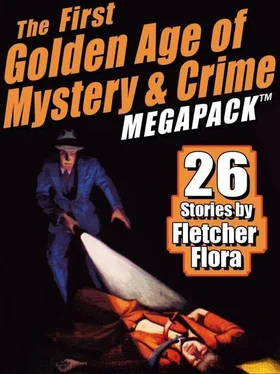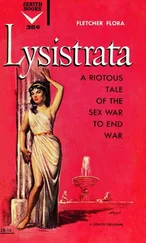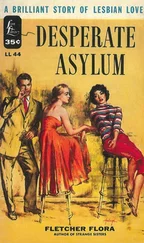Roger had been sitting, when the phone rang, on the edge of his bed holding a revolver. It was an old revolver that he had acquired from his father at the time of his father’s death. He did not like guns, and had never fired this one, although he longed to fire it, just once, and it gave him comfort sometimes to sit and hold it. He was holding it again now, having returned after the telephone call to his place on the bed.
It had been a bad day at school. He’d had discipline problems. He was not good at discipline, and he often had problems of that kind. The principal had talked with him seriously about the problems several times. It was unlikely that he would be rehired next year, but he didn’t care. It was just another failure in his life. His life was full of failures. All his days were bad.
His headache was back. It always came back. In fact, it rarely left. There was a contracting steel band around his head, slowly crushing his skull.
Ellen was coming. Coming here. She would be here soon. Ellen had been the most beautiful thing in his life, and he had loved her, but in the end she had deserted him. Another failure for him. After Ellen, his life had been sick, and all his days were bad. It had been wrong of Ellen to make him sick with hate instead of love. Now she might die. She had said so herself.
He broke the revolver in his hand. Because of a kind of inherent petty meanness in his nature which would not permit him to provide for any effort in excess of what was needed to complete it, there was only one cartridge in the cylinder. One bullet for one death.
Carrying the revolver over to a chest of drawers where other cartridges were, he loaded a second chamber.
Originally published in Alfred Hitchcock’s Mystery Magazine , November 1968.
Dinner was served at seven, the routine hour, just as if it were an ordinary evening of an ordinary day. The courses were served in order by the maid, whose name was Clara. Neva Durward sat at one end of the long dining table, and Dwight, her husband, at the other. By a scale of three inches to the year, the interval between them was a measure of the disparity of their ages. It was also a fair indication of the climate of their relationship. Neva was thirty-two. Dwight was double that.
After the final course, Dwight asked to be excused and told Clara that he would have coffee and brandy in the library. This was predictable. Dwight was always proper. He was always dull. He always had coffee and brandy in the library. As for Neva, who was not always proper and rarely dull, she excused him gravely and escaped, when he had retired, to the living room.
Dinner had not taken long. Consulting her jeweled watch, Neva saw that it was just past seven-thirty. Seven-thirty from nine left one-thirty; an hour and a half. Ninety minutes. This was a long time to wait under the circumstances, a very long time, but Neva was not, strangely enough, impatient or apprehensive. She was, indeed, almost serene. A little restless, perhaps, but nothing more. She considered television and rejected it. She thought of reading and was not tempted. Music, she decided, was what she needed now. Not, however, just any music. Music to excite the mind and heat the blood. Mozart, Beethoven, Brahms, Strauss? Yes, Strauss. Richard, not Johann. Moving to the stereo, she selected a recording and put it on the machine. Don Quixote . Standing there, her head bowed, her fingers spread and touching tips to the console top, she listened intently to the sounds of a madman’s dream.
Clara came into the room. She walked a few steps toward Neva and stopped, not speaking, her eyes fixed on the back of her mistress. Neva could not see her and did not hear her, but she knew, after a while, that Clara was there. She could sense it in the electric prickling of her skin. She was certain from her sudden illusion of nakedness. She stood quite still for a few moments longer, listening in illusory nakedness to the fantasies of madness, and then she raised her head and turned it slowly to look at Clara over a shoulder, turned her body as slowly afterward to conform.
“There you are, Clara,” she said.
“Have you served Mr. Durward his coffee and brandy?”
“Yes, Mrs. Durward.”
“We’re alone here, Clara. Never mind the formality.”
Clara’s lips had been set in the faintest of smiles, and now the smile, with no change whatever in the set of the lips, seemed to spread subtly and gather in her eyes with bright intensity.
“Yes, Neva.”
“That’s better. I have enough of propriety. Do you want something, Clara?”
“I was wondering if you’d like some coffee and brandy yourself.”
“Brandy. No coffee.”
Clara turned and went out the way she had come. She was a lovely girl, Neva thought. A strange and lovely girl with strange and mute commitments. Being herself a beautiful woman, Neva could afford the generosity of such a concession. She had no cause to envy the endowments of her maid. Crossing the room to a sofa near the fireplace, in which there was no fire, she sat down at one end, resting in a corner against an arm and the back. She wondered what Dwight was doing this moment in the library. This, too, like so many other things Dwight did, was predictable. He was surely sitting in the deep leather chair under the reading lamp, surrounded by shadow outside a small perimeter of light, his glasses slipped down on the bridge of his nose, and in his lap, lying open, whatever book he had chosen to read in snatches between naps until it was ten o’clock and time for bed.
The book, whatever its exact title, would be in some way related to the life and times of Savanarola. Since his heart attack and his subsequent retirement from active engagement in his business affairs, Dwight had sustained the fiction, somehow essential to his vision of himself, that he was hard at work on what would be the definitive biography of the Florentine friar. His work had never progressed beyond the preparatory stage, undisciplined reading and disorderly data, and Neva knew, as he did in his heart, that it never would. No loss to the world, Neva thought. It was evidence of the quality of Dwight’s character that he had chosen to admire, from a time of renaissance literally glutted with giants of the arts, a strident and bothersome reformer who had eventually succeeded, quite properly, in getting himself burned at the stake. Dwight’s nose, unfortunately, was as blue as litmus paper in an alkaline solution.
Clara returned with a bottle of brandy and a snifter on a silver tray. She set the tray on a low table at Neva’s elbow and poured from the bottle into the snifter. Stepping back, she stood watching her mistress with the faint, strange smile that gathered intensity in her eyes.
“Will there be anything else?” she said.
“No. Nothing. Thank you, Clara.”
“May I offer a suggestion?”
“Yes. Of course. What is it, Clara?”
“I’d drink lightly of the brandy if I were you.”
“So I shall. So I always do. Have you ever known me to drink to excess, Clara?”
“Never. I thought, however, that you might be tempted tonight.”
“You’re mistaken. I don’t need to look for courage in a bottle.”
“Are you offended? I’m sorry.”
“Offended, Clara? On the contrary, I’m touched by your concern.”
“I should be very unhappy if you came to harm.”
“Believe me, so should I. We must do our best to avoid it. Tell me, Clara, are you certain that you want to play a part in this?”
“Yes. I’m certain.”
“Why should you do so much for me?”
“Because you ask it.”
“I have no right. You might be wise to refuse.”
“I don’t think so at all, Neva.”
Читать дальше












